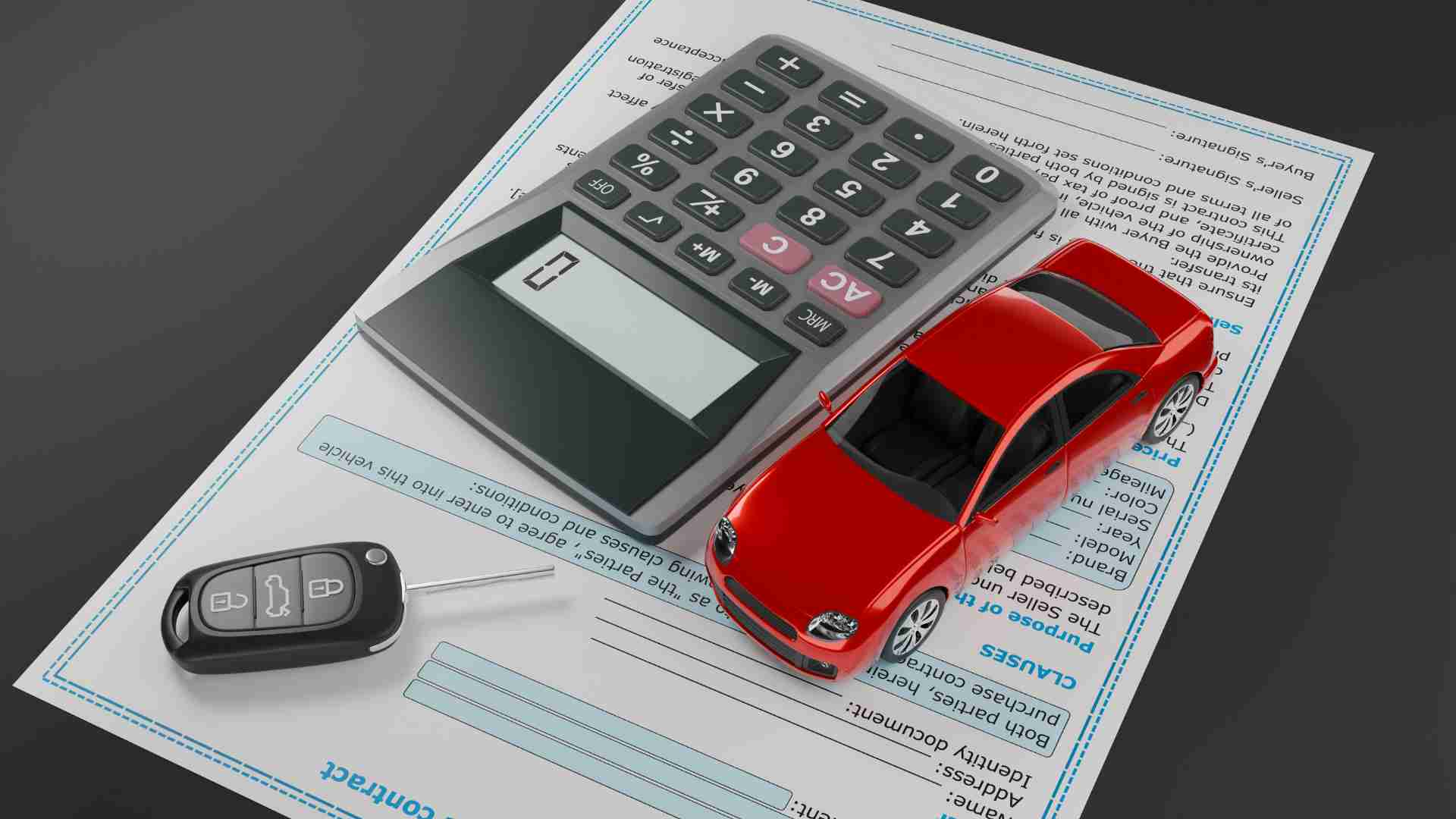Understanding Used Car Value in Canada: What Is the Book Value Of A Car?
In the world of automobile finance, few concepts are as crucial yet often misunderstood as a car’s book value. Whether you’re buying, selling, or simply curious about what is your car worth, you will notice a key concept that often comes into play is the “book value” of a car, and understanding the book value is important.
This comprehensive guide will delve into the nuances of car book value, discussing its determinants, differences from market value, and how to accurately assess your car’s worth.
Read More:
Selling Your Used Car: Maximizing Your Car’s Value in Toronto’s Competitive Market
Expert Tips to Increase Your Used Car Trade-In Value
Selling Your Used Car in Ontario: How To Do It Right
Understanding Used Car Value in Canada: What Is the Book Value Of A Car?
What Is the Book Value Of A Car?
Book value, in the context of automobiles, refers to the estimated worth of a vehicle based on a combination of factors specific to that particular car. It serves as a standardized benchmark for assessing a car’s value, independent of current market fluctuations or individual seller preferences. It’s a financial metric that takes into account various elements to provide a standardized valuation of the vehicle.
Key Takeaways About Book Value:
- It’s based on objective criteria rather than subjective market forces
- Provides a starting point for negotiations in car transactions
- Helps in assessing a vehicle’s depreciation over time
- Used by insurance companies, lenders, and dealerships as a reference point

Why does Book Value Matter?
Understanding book value is crucial for several reasons:
Informed Decision Making: Knowing the book value will enable you to evaluate whether a price is reasonable whether you are buying or selling a car.
Insurance Purposes: Book value is a common instrument used by insurance companies to decide payouts if a total loss arises.
Financing: Lenders may use book value to determine loan amounts for vehicle purchases.
Tax Implications: In some jurisdictions, vehicle taxes may be based on book value.
How is Book Value Calculated?
Car Depreciation
Understanding depreciation is crucial when considering a car’s book value over time. Here are key points to remember:
- New cars typically depreciate 20-30% in the first year.
- Depreciation rates slow down after the first few years.
- Some models hold their value better than others.
- Luxury and sports cars often depreciate faster than economy models.
Factors That Can Affect Book Value
Other than depreciation, there are several factors come into play when determining a car’s book value. Let’s check out the key elements that contribute to determining a car’s book value:
Make and Model: The value of the car is largely influenced by its brand and particular model.
Age of the Vehicle: The production year of the car is a critical factor, as newer models generally command higher values.
Mileage: The value of the car determines inversely how many kilometres are driven. Usually, lower mileage translates into better book value.
Overall Condition: The physical condition of the car, including both exterior and interior conditions, significantly impacts its worth.
Service History: The book value of an automobile might be favourably affected by a well-documented service history.
Optional Equipment and Features: Additional features and upgrades can increase a vehicle’s book value.
Market Trends: Book value may change depending on demand for particular models and the present circumstances in the market.
Book Value vs. Market Value: What Are the Difference?
While often used interchangeably, book value and market value are distinct concepts in the automotive world. Let’s explore the key differences:
Book Value
- Based on standardized criteria
- Relatively stable over short periods
- Doesn’t account for the current market demand
Book value is a more standardized approach to vehicle valuation. It relies on objective data points and industry-standard calculations. This method considers the specific attributes of an individual car, making it possible for two vehicles of the same make and model to have different book values based on their unique characteristics.
Market Value
- Influenced by supply and demand
- Can fluctuate based on economic conditions
- May vary by geographic location
Market value, on the other hand, is a more dynamic concept. It represents the amount a buyer is willing to pay for a vehicle in the current market conditions. This value can fluctuate based on factors such as:
- Local supply and demand
- Economic conditions
- Seasonal trends
- Consumer preferences
It’s not uncommon for a vehicle’s market value to differ significantly from its book value, especially for highly sought-after or rare models.
Why Book and Market Values May Diverge
There are several reasons why a car’s book value might not align with its market value:
Unique Features: Should a car have unusual or highly sought-after qualities, its price on the market could surpass its book value.
Local Market Conditions: Market values might go above book values in places where particular models are highly searched for.
Collector’s Items: Classic or limited-edition cars often have market values significantly higher than their book values.
Rapid Depreciation: Some models depreciate faster than industry standards, causing their market value to fall below book value.
How to Find Your Car’s Book Value?
Accurately assessing your car’s book value is crucial for making informed decisions whether you are selling or buying a car. Here’s a step-by-step guide to finding out a used car’s value in Canada:
Step 1: Collect all relevant details about your car, including:
Make, model, and year
Exact mileage
Trim level and optional features
Service history records
Step 2: Use reputable online valuation tools that offer book value calculations. Popular options such as:
To fairly evaluate the value of your car, be honest about its overall state of condition. Consider any recent major improvements or repairs that might compromise value. Don’t rely on a single valuation. Cross-reference from multiple sources for a more accurate estimate.
While the basic calculation of book value follows standard criteria, keep in mind there are several factors can influence the book value of a car:
Positive Influences:
Low mileage for the car’s age
Excellent condition with minimal wear and tear
Comprehensive service history
Desirable optional features or upgrades
Negative Influences:
High mileage
Poor condition or visible damage
Lack of service history
Unpopular colour or configuration
Many dealerships can also offer an estimate of the book value of your vehicle. For the most accurate assessment, especially for luxury or rare cars, you may seek a professional guide to determine your car’s worth.
For a hassle-free experience, consider YST Auto Sales, your trusted used car dealer. Selling or trading in a used car in Ontario with YST Auto Sales is quick and easy. Simply visit our Sell Your Car page and enter your car’s details to get an instant cash offer within minutes.
Unlike selling privately through online marketplaces, YST Auto Sales eliminates listing fees and time-wasting negotiations and skips the hassle of meeting buyers. You will receive a transparent cash offer upfront. YST Auto Sales offers pick-up right at your door or a convenient drop-off location.
If you’re looking to upgrade, use your old car as a trade-in for a new one from our extensive selection. YST Auto Sales will even handle the simultaneous pick-up and drop-off for both vehicles. This also saves your valuable time and saves more on your new car—a win-win!
How To Boost Your Car’s Book Value?
If you’re looking to maximize your car’s book value, consider these strategies:
Regular Maintenance: Keep up with scheduled maintenance and retain all service records.
Address Repairs Promptly: Solve Problems as they arise, and quickly address mechanical problems and cosmetic damage.
Keep It Clean: Regular cleaning and detailing can help maintain your car’s condition.
Low Mileage: Try to keep your annual mileage under average—usually between 2,0000 and 24,000 kilometres.
Preserve Original Features: Maintain factory-original parts and features when possible.
Understanding your car’s book value is essential for making informed decisions about buying, selling, or trading in a vehicle. By considering the factors that influence book value and how it differs from market value, you can:
- Negotiate more effectively when buying or selling a car
- Make informed decisions about vehicle maintenance and upgrades
- Better understand your car’s depreciation over time
- Accurately assess your vehicle’s worth for insurance purposes
Remember, even if book value is a good starting point, for the most accurate valuation of your car, it’s always wise to take current market conditions into account and consult professionals. By arming yourself with knowledge about book value and its implications, you’re better equipped to navigate the complex world of automotive transactions with confidence.
For a hassle-free experience, consider YST Auto Sales, your trusted used car dealer. Selling or trading in a used car in Ontario with YST Auto Sales is quick and easy. Simply visit our Sell Your Car page and enter your car’s details to get an instant cash offer within minutes.
Unlike selling privately through online marketplaces, YST Auto Sales eliminates listing fees and time-wasting negotiations and skips the hassle of meeting buyers. You will receive a transparent cash offer upfront. YST Auto Sales offers pick-up right at your door or a convenient drop-off location.
If you’re looking to upgrade, use your old car as a trade-in for a new one from our extensive selection. YST Auto Sales will even handle the simultaneous pick-up and drop-off for both vehicles. This also saves your valuable time and saves more on your new car—a win-win!

